2016 | Berlinale Talents
The Point of View is Decisive
The motto for the 14th edition of Berlinale Talents is “The Nature of Relations”. In this interview, the sections heads Florian Weghorn and Christine Tröstrum talk about the qualities required by a Talent to succeed today, how the age profile of Talents has changed over the years and how easy it can be to meet Meryl Streep.
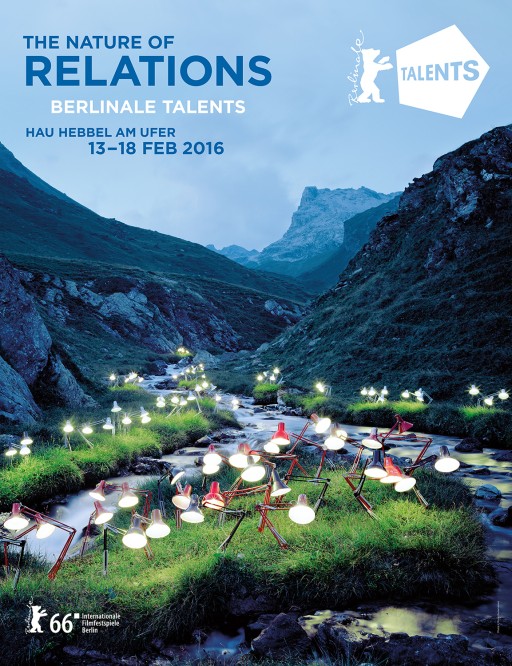
The 2016 Key Visual
In an age of connectivity, this year’s motto is “The Nature of Relations”. In what ways can relationships be natural?
Christine Tröstrum: To us, it’s about the levels of impact of human relations. Everything is interconnected but many people often no longer consciously recognise this in all its detail and correlations. As the saying goes, they can’t see the wood for the trees.
Florian Weghorn: And of course, forming and maintaining relationships is in the DNA of Berlinale Talents. We are envisioning these processes and ensuring they are more strongly present and recognisable in the formats of our events. Terms like “interdisciplinary work” and “joined-up thinking” are on everyone’s lips at the moment, even in the good old-fashioned film industry. We’re testing them on a very practical level: at our events, the guests don’t just talk about the special connection they have with a director; instead, directors and producers sit together on the stage.
Collective work has always been one of the features of film production. At the same time, since the 1960s there’s been an extremely virulent concept of the “auteur”. Has collaboration become particularly noticeable again today?
FW: We don’t aspire defining what is currently in or out of fashion. However, we rarely encounter the ideal of the hermetic film auteur in his quiet little room. Amongst the Talents, there are filmmakers who are currently forming collectives where they band together – also out of financial necessity because of the lack of infrastructure or following the collapse of other protections for the arts in society. Filmmaking, whether on a large or small scale, always requires this personal, well connected microcosm in which to produce and also to find an audience.
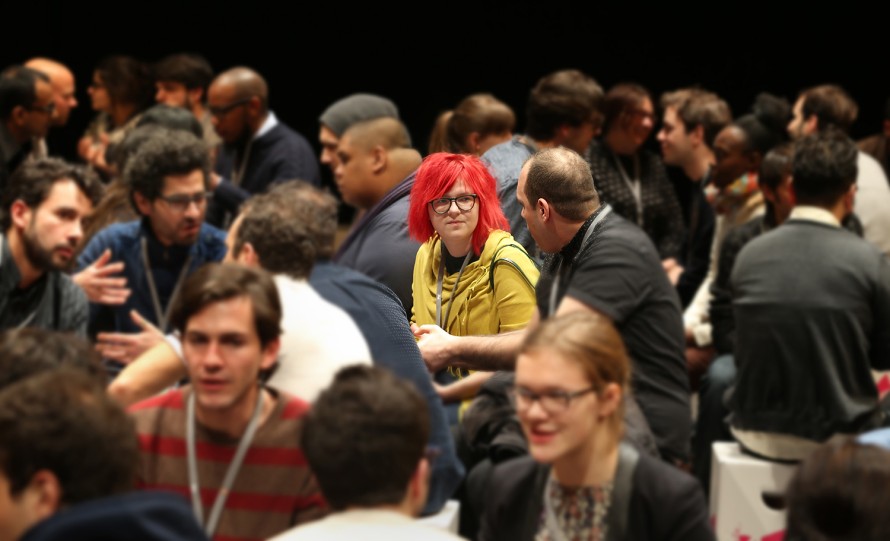
During "Global Speed Matching" in 2016.
The Point of View Makes the Shot
How adaptable must a talent be today in order to make it in the film industry? Is there a danger, amidst all this networking, of losing one’s personal vision?
FW: Quite the opposite, a personal vision is a prerequisite for survival today. And it also plays a strong role in our selection of applicants. Alongside artistic achievement and an innovative approach, the selection panel asks how much evidence there is of a point of view. There must be a resonance emerging within a country, within the film project’s intended target audience. A certain echo must be tangible, a relevance and a reference to current subject matters.
CT: The point of view is fundamental, and we encourage that in the Talents. Then comes experience and, only after that, skills. If you look at the educational landscape today the standard, except in a few countries, is very high. We define the promotion of talent as paying attention to the coherence of different levels including artistic credibility, the ability to intrigue audiences and much more. We support the Talents in developing a tenacity in their individual artistic expression. This is one of the most important pieces of advice we can give to people.
Does this attitude also carry over into the actual audio-visual work? Does the phrase “the point of view makes the shot” still hold true?
FW: More than ever. If you want to make yourself heard over today’s general hubbub, you must hit the right note very clearly. Or be massively out of tune. We neither train nor encourage people in one particular direction. The fact that Berlinale Talents invites 300 instead of just ten participants substantially increases the probability of off-key voices and surprising moments which, fortunately, are not at all predictable.
CT: The Federal Government Commissioner for Culture and the Media, Monika Grütters, is supporting Berlinale Talents 2016. She, too, calls for the courage to be experimental and to not necessarily please people. Germany needs this discussion about how we want to support talent in the future. We want to push this debate forward.
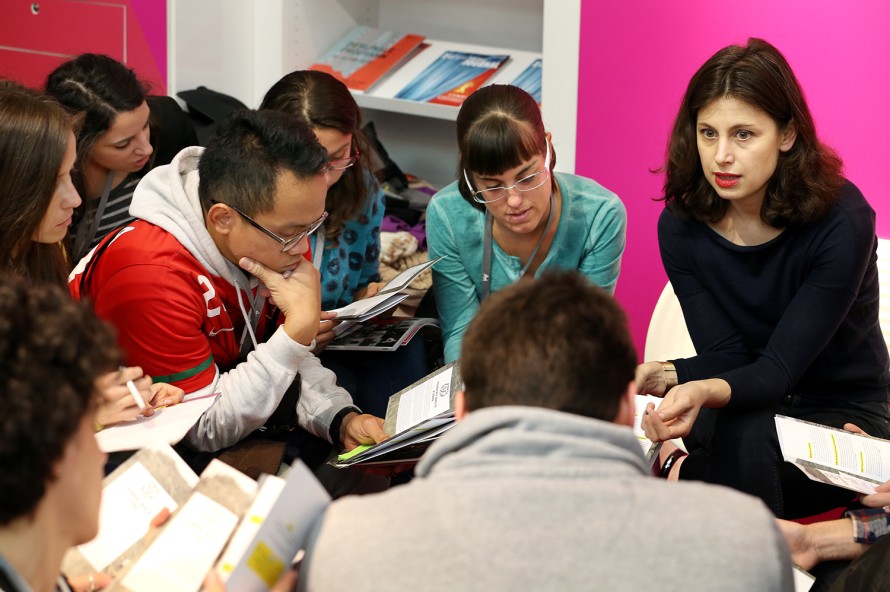
The manager of the Hubert Bals Fund Iwana Chronis at the Talents 2015.
Talents with Experience
Has the nature of the support at Berlinale Talents changed in recent years?
CT: A lot has changed, above all our own aspirations and approach. In the 14th year of our existence, the average age of our participants is now 33. At some point we have made a very clear distinction between support for the up-and-coming and support for talents. A great deal is being done around the world to support the next generation of filmmakers; in Germany, in spite of all the complaints, the situation is downright luxurious. But when it comes to the second or third feature film project, the talents are often left on their own. That is why we focus on life-long learning, on exchange and developing networks.
FW: Our participants are already talents when they come to us. From the 300 Talents selected this year, 58 have already had a film in the Berlinale – as director, sound designer or cinematographer. This comes about quite naturally. We are offering these people guidance so they can continue along their chosen path or try out some new directions.
How is this development reflected in the formats of the events?
CT: The events are becoming more interactive; participants can also be experts. This year, following our breakfasts, there is an hour-long “Talents Circle”. Working on the principle of the World Café, participants meet guests in small groups, have an exchange on a topic and can change groups as they wish. At the end there is a short recap for the entire group.
FW: This year, for example, we have also converted the “Editing Studio” and “Camera Studio” into work labs where participants from one craft can come together in order to explore new approaches in a playful way and thus have an exchange. That might sound banal but, in the compartmentalised everyday lives of cinematographers or editors, it is a real rarity.
You talk a lot about the opportunities which are opening up, about support, yet at the same time, the Talents must assert themselves in a really tough industry. Is this pressure of competition also tangible during Berlinale Talents?
FW: We are astonished at how fast connections are made during Berlinale Talents and how quickly events lead to people wanting to work creatively together in the future. There is very little competition at play. But we actually have to do some real pioneering work in the market environment. The old hands in film sales and distribution like to keep successful strategies to themselves, and sometimes understandably so. But our “Sales & Distribution Studio” seeks to change this by focusing on networking.
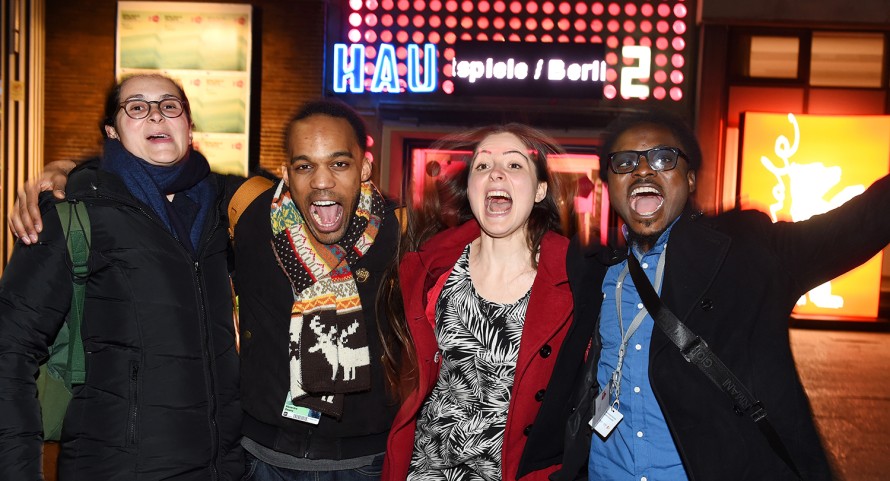
Talents in front of the HAU Hebbel am Ufer; the official venue of Berlinale Talents.
CT: From this studio, for example, a group has emerged over the years which still collaborates from time to time and jointly acquires film rights. To place art-house films successfully in the market is like swimming with sharks because there are simply too many productions around. Anyone who really wants to make money out of this needs to draw on more flexible models. And for us that is the collective.
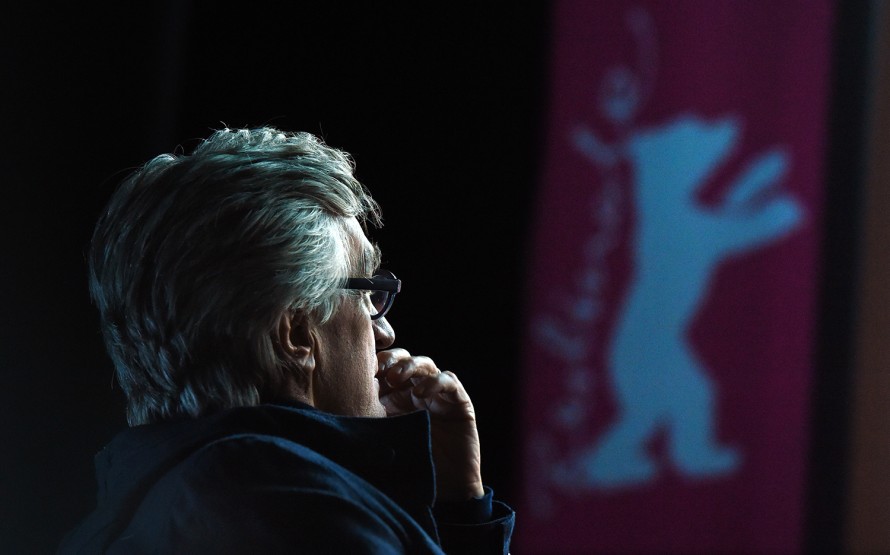
Prominent guests; Wim Wenders at the Talents in 2015.
Regionality and Escape
The topic of refugees is omnipresent in Germany at the moment. Is it also playing a role with you this year?
FW: During the six days our participants from 78 countries can see that it is fun to interact with one another, even in a contentious manner. And of course we have filmmakers in our network of over 6,000 alumni who are actually in a refugee situation. Their stories not only inform their films, they must also find a place in Berlinale Talents as life stories. Because to arrive in Germany also means to work and establish new relations – which brings us back to that topic once again.
Are there still differences between the cultures or has film culture become globalised and homogenised in the networking age?
CT: The worldwide network has actually rendered the differences more visible. Differentiation is necessary if you want to stand out at all. Locality is, in some sense, a “unique selling point”, if you will. And digital networks mean we can explore the inner structures much more deeply, hear quieter voices, discover cinematic pearls and engage in discussions with people. That is a great gift.
As in every year, rather than being a closed shop, Berlinale Talents has many events in its programme which are open to the public. Does this mean that, as a Berlinale visitor keen to meet the President of the International Jury, I don’t have to stand and wait beside the Red Carpet?
FW: Yes, Meryl Streep will be attending our opening panel and, fully in keeping with “The Nature of Relations”, will talk about the relationship she has as an actress to her roles. We are generally offering a very varied programme for Berliners and festival-goers. You can experience award-winning animation filmmakers with their pencil on the stage, photographer Jim Rakete is meeting cinematographer Michael Ballhaus, and Dogme 95 filmmaker Thomas Vinterberg, on the trail of collectiveness, is returning in his mind to his time as a child amongst hippies. You can also find the Talents on the big screen in over 80 films at the festival and, a first for us, also in a TV series which we’re screening on the final day of Talents in HAU1. So the audience can establish many new relations, quite naturally.